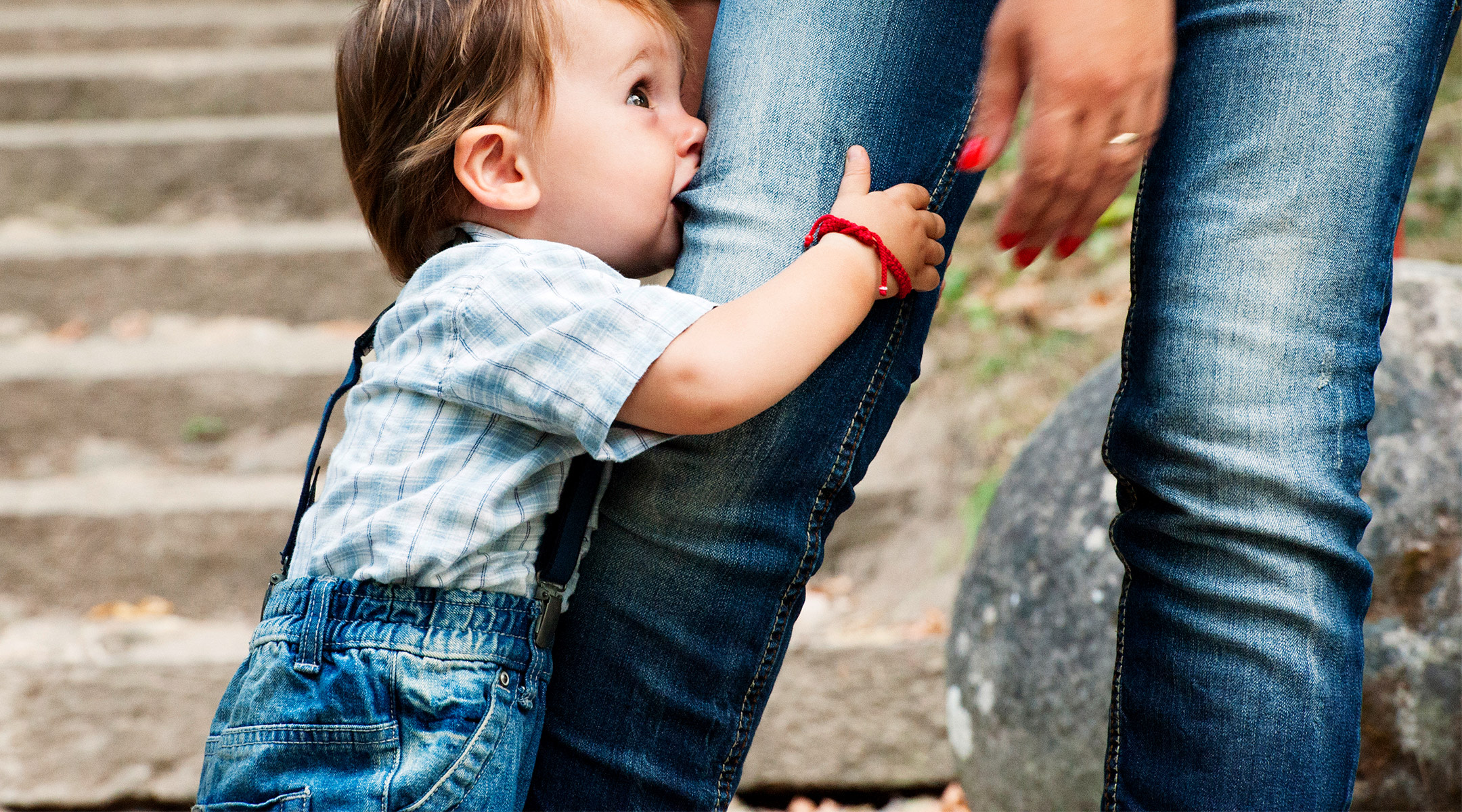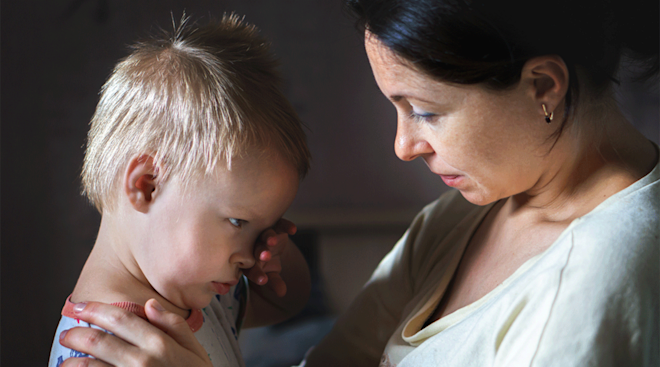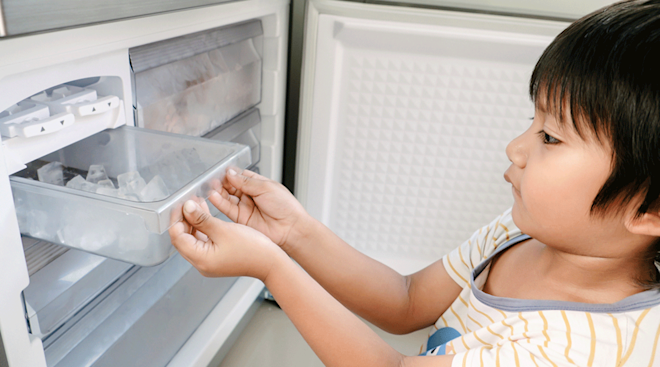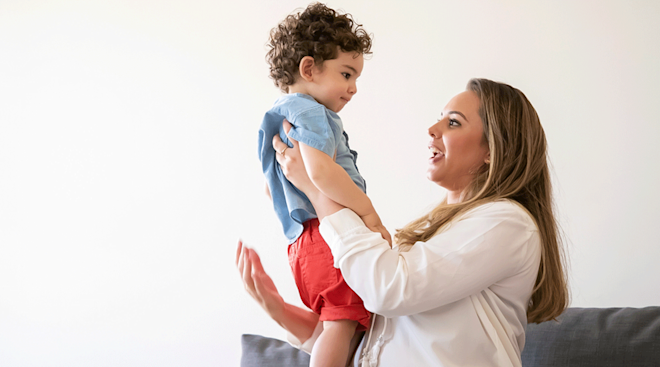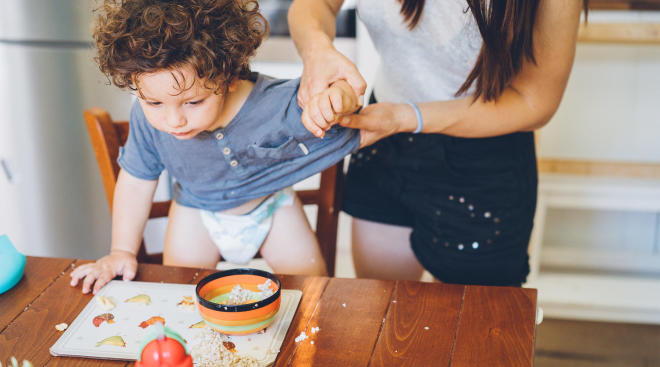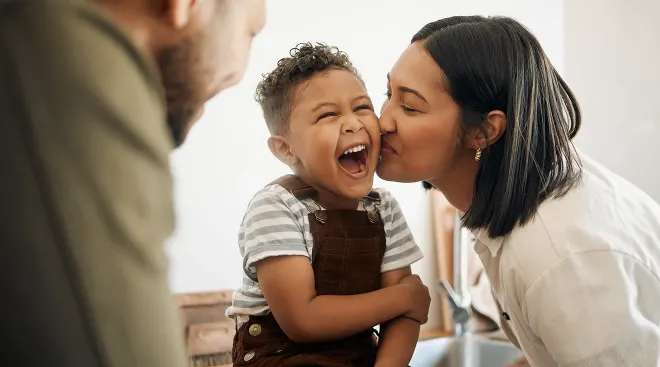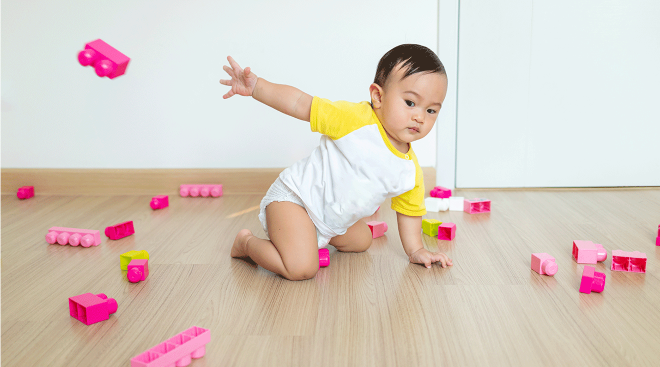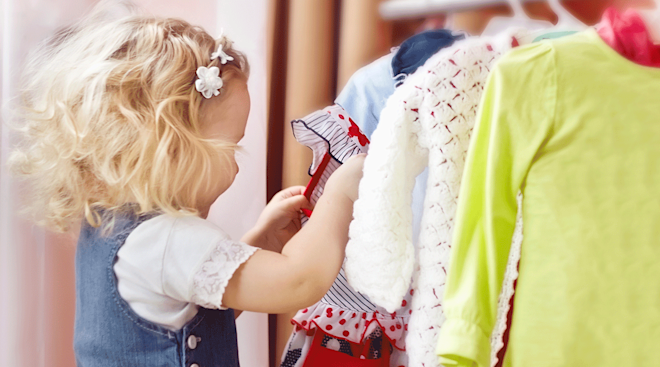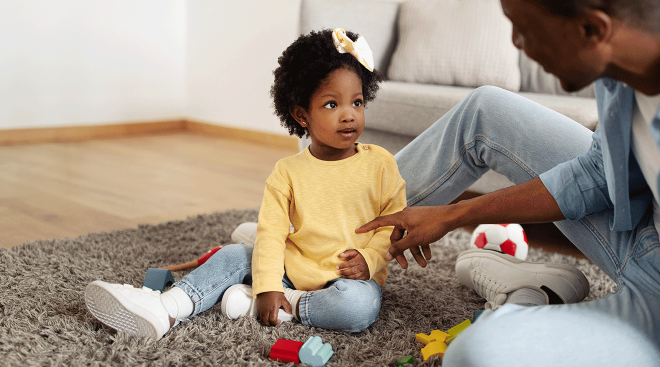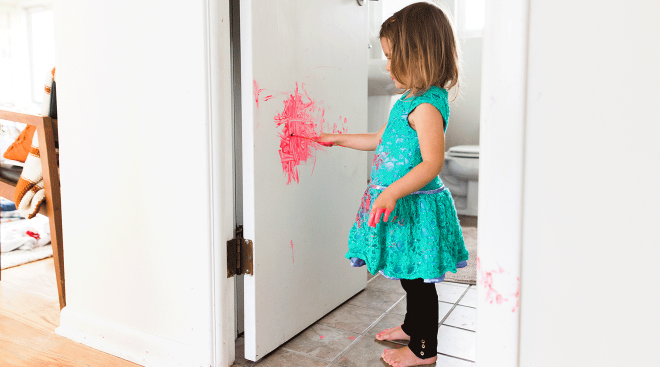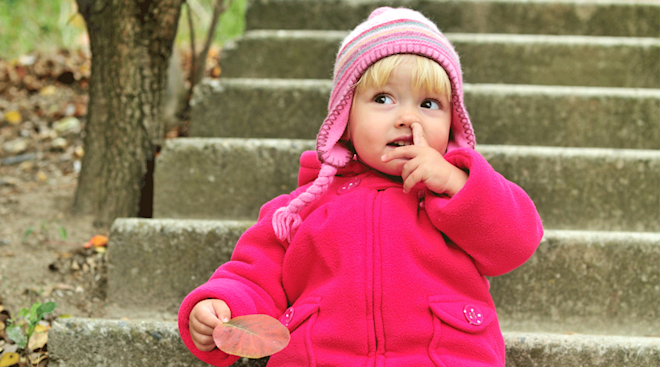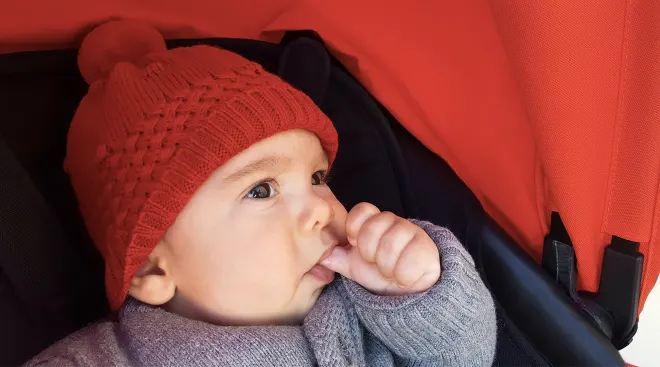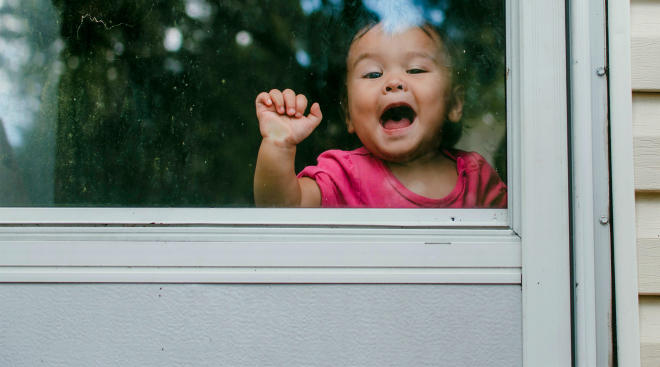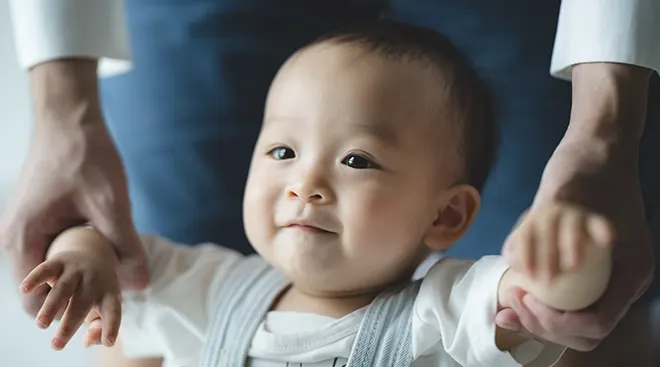What to Do if Your Toddler Bites
Your toddler is funny, sweet, smart…and you just heard that he bit a classmate at school. Hearing that your toddler is a biter can be mortifying, and concerning, but experts say that biting is a completely normal developmental phase. Even though toddler biting is normal, that doesn’t mean it’s not serious, or that you don’t have to put rules in place—both at home and at school—to nip the behavior in the bud. Here, why toddlers bite, what to do if your toddler bites, and how to stop it from happening.
Before you panic, take a deep breath. While biting isn’t behavior you condone, it can be helpful to know that it is completely normal. It’s usually a way for a toddler to communicate. “Toddlers are still developing language skills and do not have much control over their emotional impulses,” says Catricia Tilford, MD, a board certified pediatrician affiliated with Rowedocs Telemedicine Network. “Tantrum behaviors like hitting and biting are usually because a child is upset and frustrated and cannot express how they feel.”
You or your child’s caregiver may see a pattern to their biting. For example, does your child lash out physically when he’s tired or hungry? “Try to get to the root of the tantrums,” Tilford says. “This can help both you and your child avoid meltdowns by planning ahead, such as packing a snack when running an errand.”
Toddler biting generally begins around 12 months. At this age, toddlers are egocentric and may not understand “why” biting is bad, since they don’t realize biting can hurt. What they do know is biting gets attention, gets them what they want, and provides an immediate reaction. Older toddlers may know that biting hurts, but they may still do so because they do not have the words or skills to otherwise get what they want. Depending on the age of your toddler, you may need to redirect your teaching approach. Many toddlers experiment with biting and may only do it a handful of times before learning a better way to communicate. Others may have a harder time. If physical injuries, like breaking the skin occur, or if the aggressive behavior seems to be escalating, Tilford says to consult your pediatrician. They can act as a sounding board and weigh in on the best discipline strategies for your child.
The best way to prevent toddler biting is to intervene well before a disagreement becomes physical, Tilford says. For example, if you know your toddler gets extra cranky in the lead-up to naptime, substituting a quiet activity for playground time may help you avoid a biting incident. Here, other tips to prevent toddler biting:
•Redirect your child: When you see your toddler getting frustrated, step in and help them problem solve, suggests Tilford. If she’s fighting over a toy, suggest a new activity. “A great first approach is to shift their focus from what has caused their frustration.”
•Validate their feelings: A toddler bites because she’s feeling angry or frustrated, so try to give her the words to explain how she feels, Tilford says.
•Model Appropriate Behavior: Not that you’re going to bite anyone, but the way you respond to conflict matters. “Remember you are their role model and how you deal with disagreements and stress has a great influence on their behavior,” Tilford says.
Sometimes, you may have missed clues that your toddler was about to bite. Other times, your well-behaved toddler at home bites in day care, an experience that can be frustrating for parents who want to know what may have happened to cause the biting. In these cases, partnering with your child’s teacher or caregiver is key. Work together to help your child learn how to handle frustration and anger in a more appropriate way. Here, some tips for putting a stop to toddler biting:
•Do say no. Say firmly “no biting!” “Toddlers are capable of understanding biting is unacceptable even before they can truly understand that it’s hurtful,” Tilford says.
•Don’t yell. Screaming, yelling or getting overly upset gives your child attention. “Once you have addressed the biter, turn your attention to the child who was bitten and make sure they are okay and provide them with support and comfort as well as any medical attention, should that be needed,” says Julie Kandall, education director of Columbus Preschool in New York City. “This sends the message to the biter that negative behavior is not rewarded with attention.”
•Do try a time out. “By about age one, a toddler can have a one-minute time out,” Tilford says, explaining the length of a time out should be a minute for every year of life. The key is consistency: Make sure your discipline strategy remains the same for every instance. It’s important you and your day care or caregiver are aligned and using the same strategy.
•Don’t bite back. Some parents bite their toddlers back to show them how it hurts, but experts warn that may backfire. You’re the adult and you’re the authority, so using your words and showing that you can express anger in other ways is a more valuable way to model appropriate behavior.
•Do talk about feelings. Because toddlers bite when they feel they can’t communicate, it’s important to give them the words they weren’t able to use. “She needs to learn how to express her anger in more appropriate ways—by saying “no” if a child tries to take a toy, or by going to a teacher for help—and building these skills can also help stop biting behaviors,” Kandall says.
•Don’t get overly caught up in discussion. “Toddlers live in the moment, and for some toddlers, the biting they did even a minute ago may as well have been a week ago,” Kandall says. If a toddler bites, talk about it in the immediate aftermath, but don’t bring up the incident days or weeks down the road.
•Do encourage good behavior. When a toddler plays nicely or acknowledges their feelings, a technique called sportscasting can be helpful in teaching them they’re on the right track, according to Tilford. If your toddler wants a toy doll, but makes the decision to use a toy car when she sees another child holding the doll, give a play-by-play of what’s going on. “Wow, you’re doing such a good job choosing another toy while you wait for the doll,” is positive praise that can encourage them to choose this method in the future.
•Don’t dwell on the issue. Again, since toddlers live in the moment, it’s best to call out good behavior in real time, rather than reflect on something that happened earlier in the day or worry about what your toddler will do tomorrow.
•Do talk with your child’s teacher. While it may be mortifying to hear your 2-year-old has bitten someone, trust that it’s normal behavior your child’s teacher has seen before. “For toddlers, being a part of a classroom community means they will need to learn to share the same space and materials with their peers, wait for their turn to use a toy as well as learn to compromise and be flexible thinkers,” Kandall says. “These skills do not develop overnight.” Kandall says it can be helpful for your child’s teacher to hear how she behaves at home, or what she does when she gets frustrated. “If we know they’re sad because their mom is away on a business trip or they have a new baby sister or they haven’t been sleeping well, we can keep an extra eye on them,” she says.
•Don’t blame the school. Ideally, an incident should be stopped before it even happens, and it can be tempting for parents to assume that a lack of supervision led to the bite. While it’s smart to ask the teachers about the incident, do so from the perspective of partnering together to put a stop to the behavior.
You may feel upset, or even guilty when you learn your toddler has bitten another child. It’s not your fault; your toddler is just learning how to communicate. That said, you’ll want to help him stop the behavior and find other ways to express himself. Incorporate these strategies:
•See It as a Process. Instead of solely trying to stop your toddler from biting, see this as teaching your child the skills to share their feelings, problem solve and communicate more effectively. Knowing that it may take awhile to cement these skills can stop you from feeling like you have to “fix” things immediately.
•Identify Feelings. A toddler who is frustrated may lash out without thinking; validating their feelings—and teaching them to identify those feelings—can help them pause and learn to self-soothe before the behavior escalates.
•Talk with your child’s caregiver. Remember that you’re all on the same team. Brainstorming a strategy and keeping it consistent from home to school can help avoid confusion for your child.
While toddler biting isn’t something to be celebrate, it’s incredibly normal, and a great opportunity for your child to learn lifelong communication and problem-solving skills. By keeping perspective, you can avoid getting discouraged or feeling guilty, and focus on helping your toddler establish these important skills.
Please note: The Bump and the materials and information it contains are not intended to, and do not constitute, medical or other health advice or diagnosis and should not be used as such. You should always consult with a qualified physician or health professional about your specific circumstances.
Plus, more from The Bump:
Published March 2018
Navigate forward to interact with the calendar and select a date. Press the question mark key to get the keyboard shortcuts for changing dates.
































